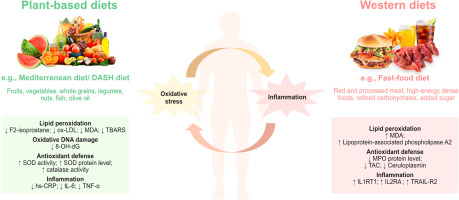
Consumers in the EU, China, and the US are prepared to pay a premium for plant-based meat substitutes, with an average premium of 1.97$/kg. These premiums were different depending on consumer income and consumer segment. China: 54% of the respondents said they would pay an additional cost for plant-based meat substitutes. Only 15% did not say that they would.
Plant-based protein substitutes
You can satisfy your hunger with plant-based proteins substitutes for meat. Peas are a good example. Peas are high-protein, very low in carbohydrate, and have a lot iron. Pea-based meats have become a popular alternative to meat.
Lab-grown beef
Lab-grown beef may be viewed differently by consumers than other meat alternatives. Labeling has been shown to play an important role in consumer perceptions. While research shows that labels can influence consumer preferences, it is important for consumers to understand the details of lab-grown meat before they make a purchase.

PBMA
PBMA (plant-based protein) is a good substitute for meat. These products are often made from soy protein, pea protein, or wheat gluten. PBMA isn't a great substitute for meat, as some people can react to certain ingredients. Some brands include an egg white ingredient that is not suitable for substitutions.
CM
CM can be an alternative to factory-farm meat, but it must be made cheaply to be competitive. This will take decades and it will cost more than animal meat. But once it becomes cheap, CM will eventually replace animal meat on factory farms, saving billions of animals from suffering. This won't mean that animal agriculture and factory farms will cease.
Mushrooms
Mushrooms make a great meat substitute, as they are rich in umami and have a dense meaty texture. This makes them an excellent base for vegetarian meat dishes. Mushrooms are a healthier choice than animal products.
Cauliflower steak frites
Cauliflower steaks make a delicious vegetarian alternative to steak. They are delicious and taste exactly like regular cauliflower. To make a meaty dish from cauliflower, you need to cook the steaks until they have the same texture as real beef. You can achieve the same flavor by adding some harissa, a North African hot chili paste. This sauce is a great addition to cauliflower steaks.

Mushroom burgers
You can substitute meat for mushrooms in burgers. There are many different ways to make mushroom burgers. You can grill them on a pan. You can grill the mushrooms on a pan or grill. If you want the mushrooms to look more meaty, add some vegan cheese.
FAQ
Take herbs and other supplements to improve your immunity
It is possible to boost immune function by using herbs and natural remedies. Examples include ginger, garlic and oregano, echinacea, vitamin C, ginkgo Biloba, and echinacea.
These herbal remedies shouldn't be used to replace traditional medical treatment. Side effects may include nausea, diarrhea, stomach cramps and headaches.
Is being cold bad for your immune system?
Cold weather can cause a decline in your immune system. Your body makes less white blood cell to fight infection. But, cold makes you feel better. Your brain releases endorphins that reduce pain.
What is the working principle of an antibiotic?
Antibiotics are drugs which destroy harmful bacteria. Antibiotics can be used to treat bacterial infection. There are many types of antibiotics. Some are administered topically, while others are given orally.
People who have been exposed are often given antibiotics. An oral antibiotic might be prescribed to someone who has been exposed to chicken pox. This will prevent the spread of shingles. For those with strep-thorphritis, an injection of penicillin could be given to prevent them from getting pneumonia.
Children should not be given antibiotics without the consent of a doctor. The possibility of side effects that can cause serious side effects in children is greater than for adults.
Diarrhea is one of the most common side effects of antibiotics. Other side effects that could occur include nausea, vomiting and dizziness. These side effects typically disappear once treatment is complete.
Statistics
- Extra virgin olive oil may benefit heart health, as people who consume it have a lower risk for dying from heart attacks and strokes according to some evidence (57Trusted Source (healthline.com)
- According to the Physical Activity Guidelines for Americans, we should strive for at least 150 minutes of moderate intensity activity each week (54Trusted Source Smoking, harmful use of drugs, and alcohol abuse can all seriously negatively affect your health. (healthline.com)
- According to the 2020 Dietary Guidelines for Americans, a balanced diet high in fruits and vegetables, lean protein, low-fat dairy and whole grains is needed for optimal energy. (mayoclinichealthsystem.org)
- WHO recommends consuming less than 5% of total energy intake for additional health benefits. (who.int)
External Links
How To
What does the word "vitamin" mean?
Vitamins are organic compounds naturally found in food. Vitamins are essential for our bodies to absorb nutrients from the foods we eat. Vitamins cannot be made by the body; they must be taken from food.
There are two types: water-soluble and fat-soluble vitamins. Water-soluble vitamins dissolve quickly in water. These include vitamin C (thiamine), Vitamin B1 (riboflavin), Vitamin B2 (riboflavin), Vitamin B3 (niacin), Vitamin B6 (pyridoxine), Vitamin C, B1 (thiamine), Vitamin B2 (riboflavin), Vitamin B3 (niacin), and Vitamin B6 (pyridoxine). The liver and fatty tissue are the main storage places for fat-soluble vitamins. Vitamin D, E, K and A are some examples.
Vitamins can be classified according to biological activity. There are eight major types of vitamins.
-
A – Essential for normal growth, and the maintenance of good health.
-
C - important for proper nerve function and energy production.
-
D - essential for healthy teeth and bones.
-
E - needed for good vision and reproduction.
-
K - Essential for healthy muscles and nerves.
-
P - essential for strong bones, teeth and tendons
-
Q – aids digestion and absorption.
-
R - Required for red blood cell production
The recommended daily allowance (RDA) of vitamins varies depending on age, gender, and physical condition. RDA values are set by the U.S. Food and Drug Administration (FDA).
For adults aged 19 and older, the RDA for vitamin B is 400 micrograms daily. Because it is essential for the development of the fetus, pregnant women should consume 600 micrograms per days. Children ages 1-8 require 900 micrograms per day. Children under 1 year old require 700 micrograms daily, while infants over one year old need 500 micrograms every day. This decreases between 9 and 12 months.
Children between the ages of 1-18 need 800 micrograms per daily for obesity, while those overweight require 1000 micrograms. To meet their nutritional needs, children underweight and obese need 1200micrograms.
Children aged 4-8 years old who have been diagnosed as having anemia require 2200 micrograms of vitamin C per day.
Adults over 50 years of age need 2000 micrograms per day for general health. Women who are pregnant or breastfeeding need 3000 micrograms per day due to increased nutrient requirements.
1500 micrograms is the recommended daily intake for adults aged 70+, as they lose 10% of their muscle every ten years.
Women who are pregnant, nursing or breastfeeding need more than the RDA. Pregnant women need 4000 micrograms per dayduring pregnancy and 2500 micrograms per day after delivery. Breastfeeding mothers require 5000 micrograms daily when breast milk production is occurring.